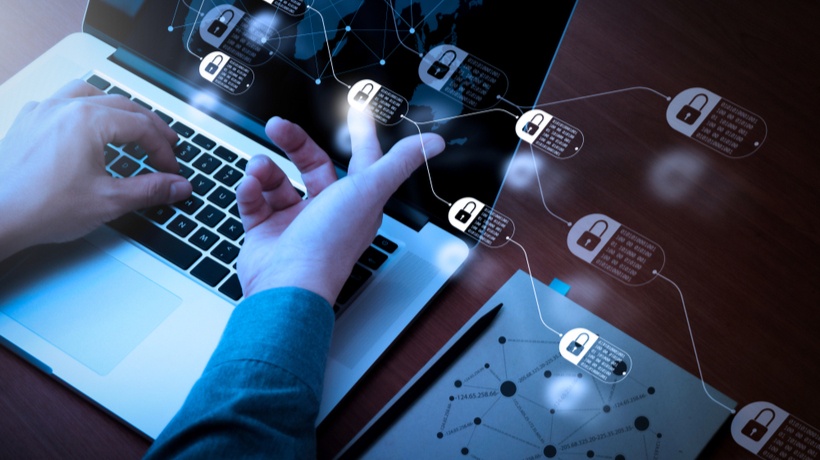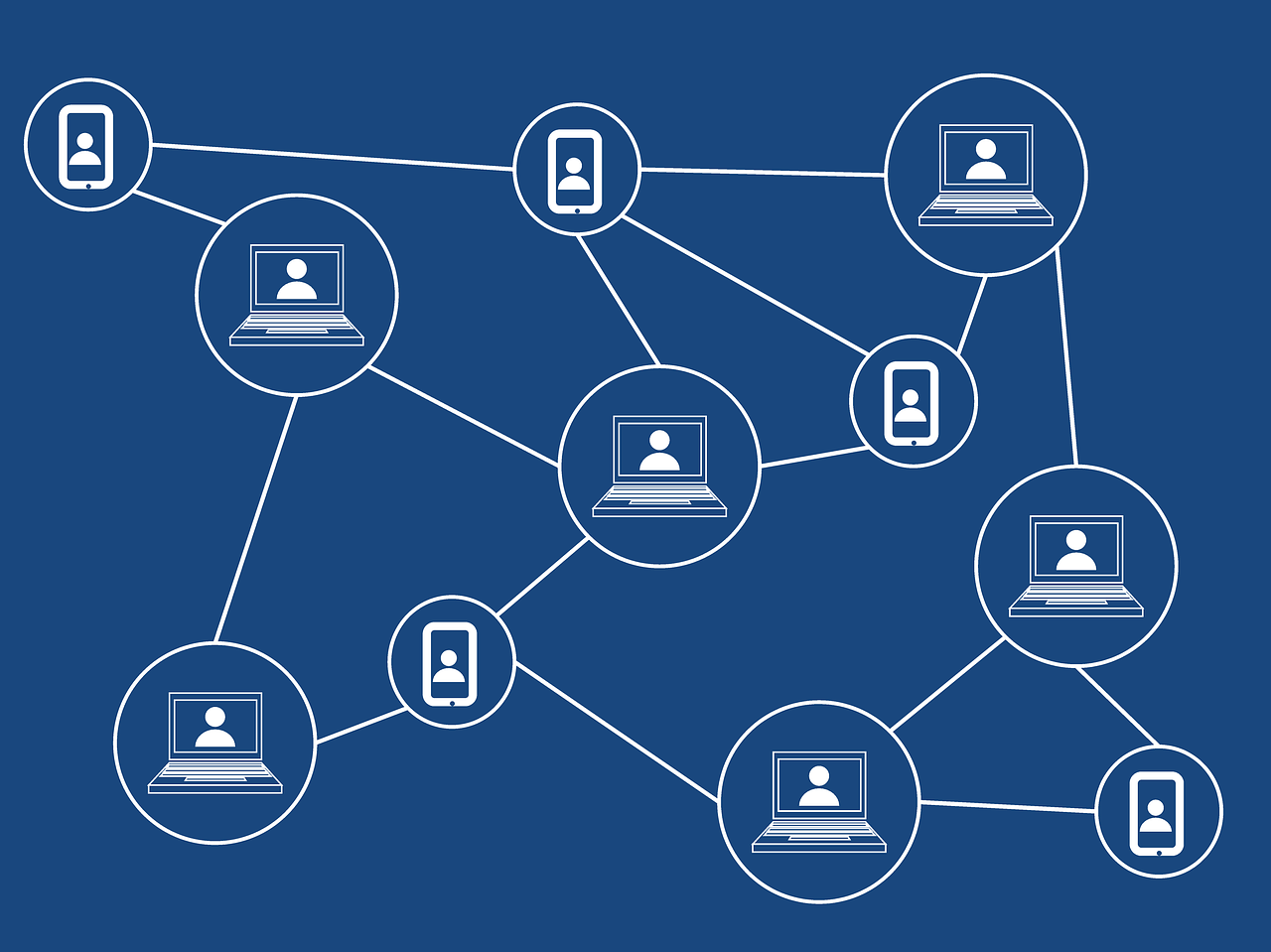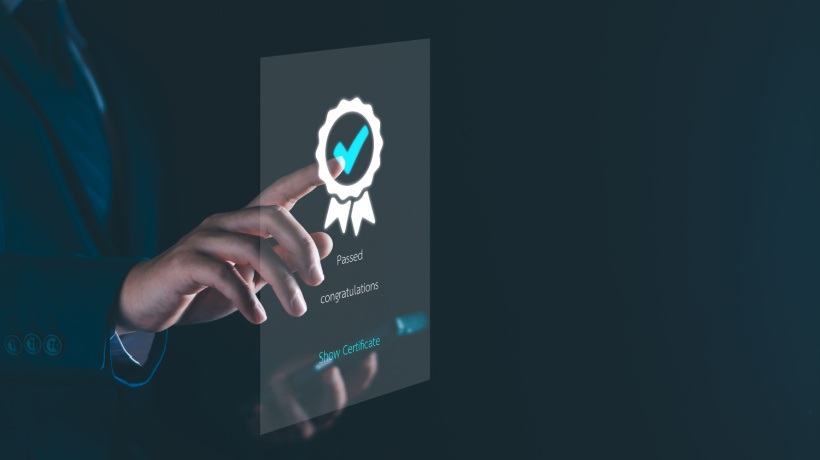Applications Of Blockchain In eLearning
"Blockchain" and "cryptocurrency" are two phrases that have become widely used in the IT industry during the last several years. Blockchain was created and published to the public in 2008 by a person known as Satoshi Nakomoto to serve as the public transaction log for Bitcoin, one of the first cryptocurrencies. Blockchain as a technology is currently advancing at a dizzying pace. It's employed in a range of businesses, including banking, hotels, healthcare, and government projects.
When it comes to digital transformation technology, the latest buzzword is blockchain. This futuristic technology is so adaptable that it has the potential to disrupt the corporate training business. As a result, visionary executives have already begun to use this disruptive technology to drive company innovation.
According to the Global News Wire, mobile learning is still the fastest-growing market in the sector, with an average annual growth rate of 20%. Mobile learning is expected to be valued at $22.4 billion by 2020. The global market for mobile learning is expected to reach $80.1 billion by 2027. So why wouldn’t one consider shifting from traditional systems to online learning if such is the growth statistics? Let us give you a few more convincing reasons.
The Powerful Combination Of Blockchain And eLearning
The rapid shift to online learning and education that occurred in 2020 has received a lot of attention. COVID-19 may have hastened the shift from physical education and learning to online formats. Rather than starting a new trend, it has just accelerated what was already happening.
A substantial amount of personally identifiable information is sent between the individual, the institution, and a variety of third-party suppliers as part of the educational or training process. With a combination of information security and the ability to transmit data across a vast network in a purely virtual manner, blockchain appears to be nearly tailor-made to assist in safeguarding and protecting this new model of education. To improve the educational process and product, there are a few considerations and opportunities for online instructors, schools delivering online education, and private sector blockchain development services firms.
Credentials And Digital Badges
One of the most essential applications of blockchain in eLearning is the creation of secure digital badges and certificates that can be readily verified and displayed on digital portfolios. For example:
- Accredible is the official certification partner for top organizations like Rosetta Stone, Google, Udacity, Kaplan University, and Hootsuite, and was founded in 2013. Accredible guarantees paperless, one-click, digital credential verification and integrates with a variety of popular digital tools and systems.
- Edgecoin is another firm in the same field that offers blockchain-based smart certificates and digital credentials. Edgecoin provides a secure web-based dashboard for educational institutions to develop, maintain, and issue blockchain-based credentials, such as transcripts, diplomas, mark sheets, and certificates.
Cryptocurrency For Rewards
How may the learner be rewarded? As technology advances, utilizing bitcoin to reward students for finishing programs is an intriguing new option to motivate students to finish programs more quickly. A service like BitRewards, for example, makes this procedure easier and more efficient.
Student Records And Data
As more educational institutions rely on internet-based databases, the risk of hackers altering grades and adding unearned credentials, as well as stealing the entire information, has grown. Blockchain allows them to better identify their students while also protecting their privacy and records. It also aids in the funding of education and the awarding of students for their high-quality work.
Securing Intellectual Property
Many breakthroughs and developments have been sparked by, or at least somewhat influenced by, educational institutions' research and efforts. Individuals working in the educational field frequently devote a significant amount of time and effort to producing intellectual property in the form of research. The need of safeguarding and potentially monetizing the results of these efforts toward education is crucial in an economy that is increasingly digital-first and evolving toward a digital-everything model.
Reimagining Higher Education
The idea of a borderless and entirely open system is one of the most famous use cases and principles that drive the blockchain ecosystem. The open exchange of information and guaranteeing that this information is accessible are essential components of blockchain. A totally new educational model is achievable by integrating these basic functional components of blockchain into higher education. Given how linked the world is on a daily basis, it only makes sense that education should follow pace.
Organizations are now adopting blockchain development services mostly to issue and hold easily verifiable credentials and certificates. Other instances in which blockchain could be useful include:
- Credit transfer between educational institutions
- Using these credits to evaluate future employees' abilities
- Using blockchain to verify the legitimacy and authenticity of accreditations
- Sharing and updating learning information on a blockchain-based platform
- Validating transactions and payments for content services provided by individuals and organizations
The Future Of Blockchain In Education
The European Commission's Joint Research Centre (JRC) report [1] closes with a significant finding: Blockchain's future depends on transparency. Only "truly open" blockchain systems in education can accomplish their genuine goals and potential. The paper outlines 3 open implementation criteria.
- Recipient ownership: By managing the private keys, the student, not the educational institution, controls their credentials and can manage and share them without having to contact the educational institution.
- Vendor independence: Without contacting a vendor, a record owner can share, relocate, or validate a record. The MIT Media Lab and Learning Machine created Blockcerts, an open standard for providing and verifying credentials. Blockcerts' purpose is to avoid a standards war that could force educational institutions and other organizations to use specific digital credential providers and proprietary standards.
- Decentralized verification: Because rather than individual humans, cryptographic algorithms ensure that consented transactions or ledger entries can't be changed after they have been validated. Hence, transferring ownership, control, and security from one person or a bigger business entity to a decentralized ledger makes counterfeiting credentials non-viable and unthinkable.
Naturally, some organizations and corporations, such as those that have proprietary certification methods, may be opposed to these objectives. "Blockchain-based ledgers have the potential to disrupt the essential technology that underpins an industry worth $2.7 billion," according to the paper. As a result, the future and the importance of blockchain for business [2] in education is still unknown and open to new ideas.
Summarizing
Blockchain technology is an important aspect of human ingenuity and survival. We have merely scratched the surface of what it can achieve for society's growth. Whole industries will be changed and the online education sector will be no exception, thanks to blockchain's increased security and incentives. The educational technology trends will continue to grow and evolve.
The importance of blockchain for business is currently in its early stages of inception, and its applications and usage outside of banking, logistics, and manufacturing are restricted. Blockchain development services have a lot more to offer to the eLearning business than just digital certificates and cryptocurrencies for rewards.
If you'd like to learn more about blockchain technology, you can contact us to explore if this disruptive technology is right for your company. Are you ready to begin?
References:
[2] 10 Ways to Embrace Blockchain for Business Transformation









